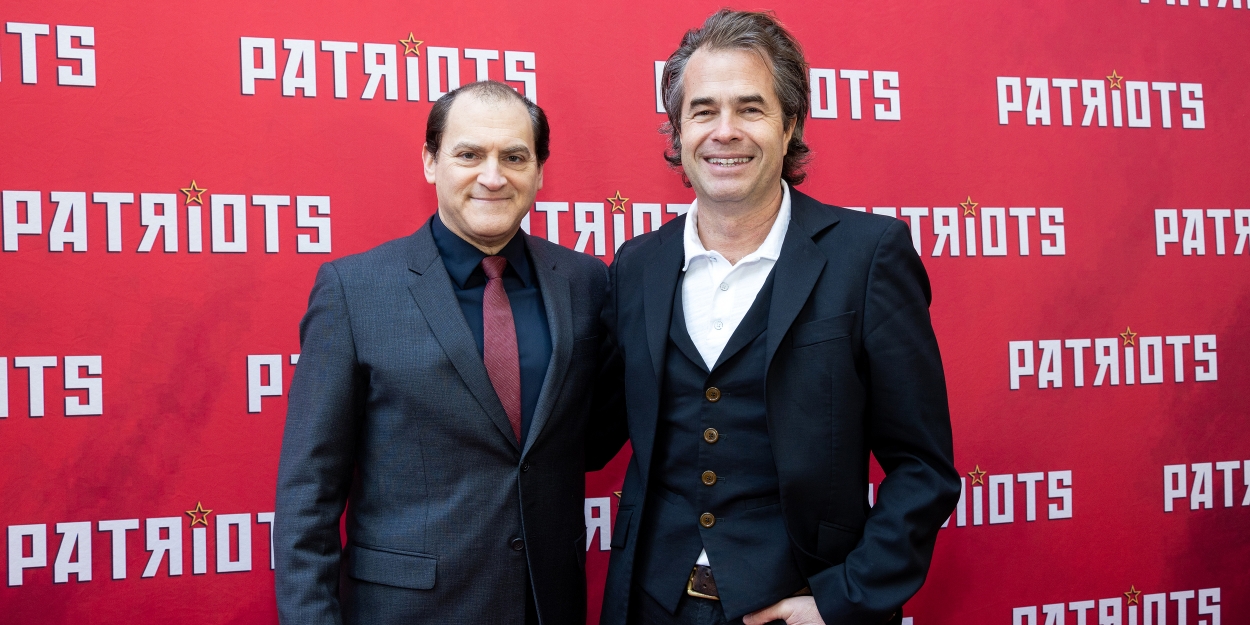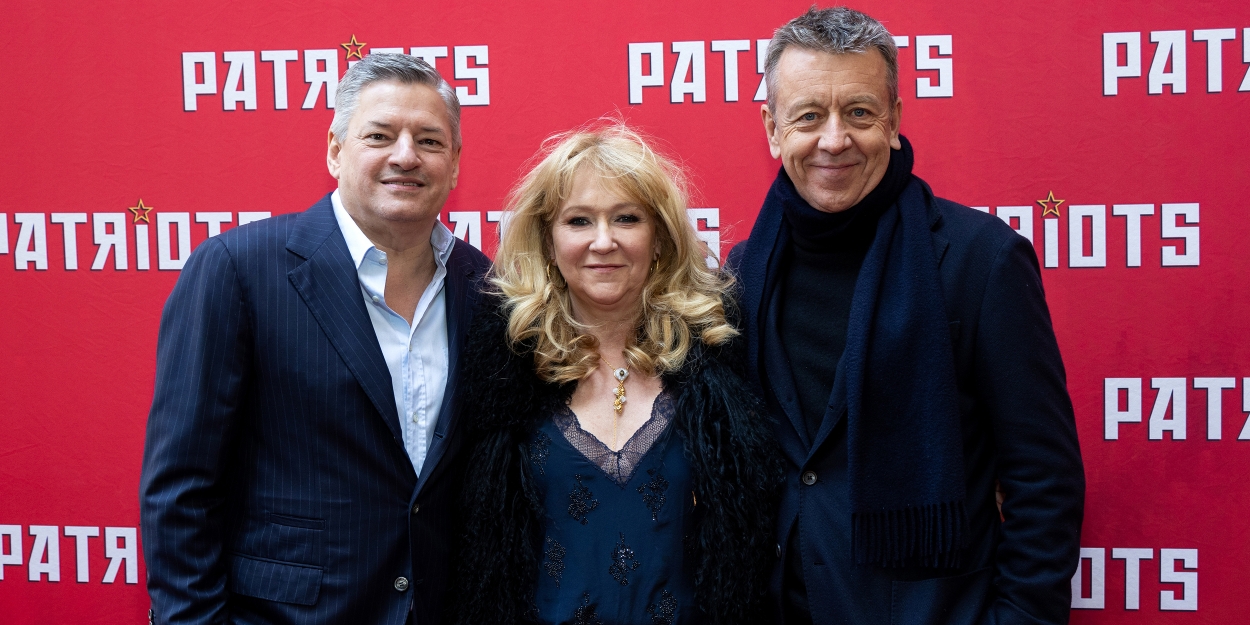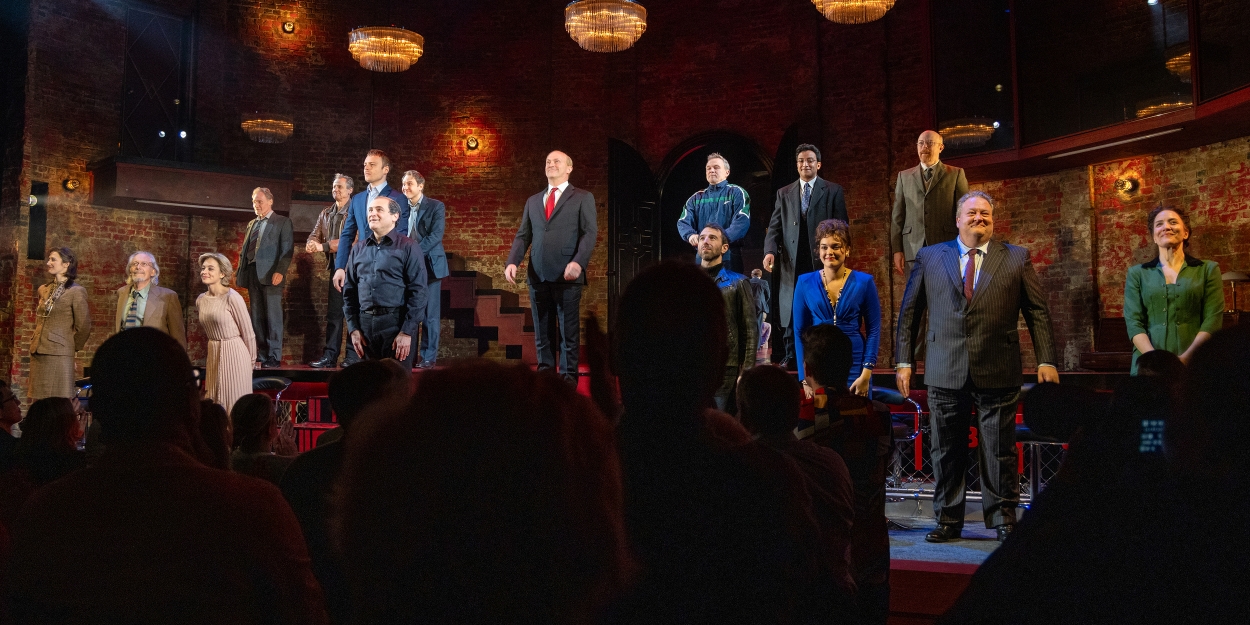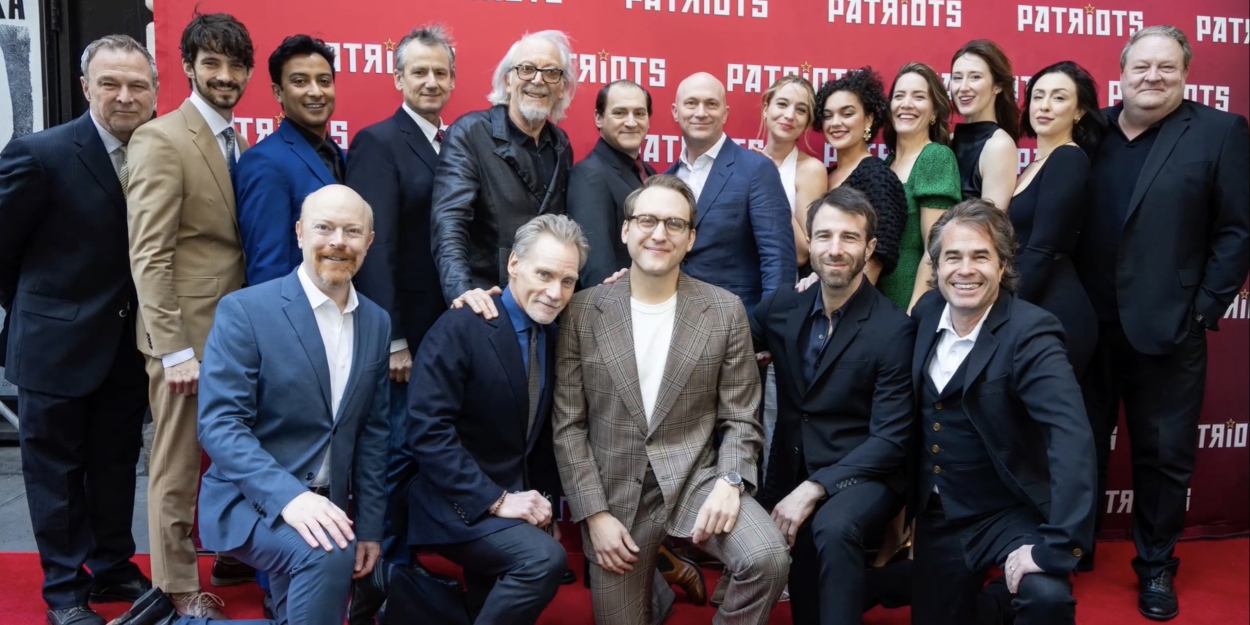Review Roundup: Peter Morgan's PATRIOTS Arrives on Broadway
Patriots opens April 22, 2024 at the Ethel Barrymore Theatre.
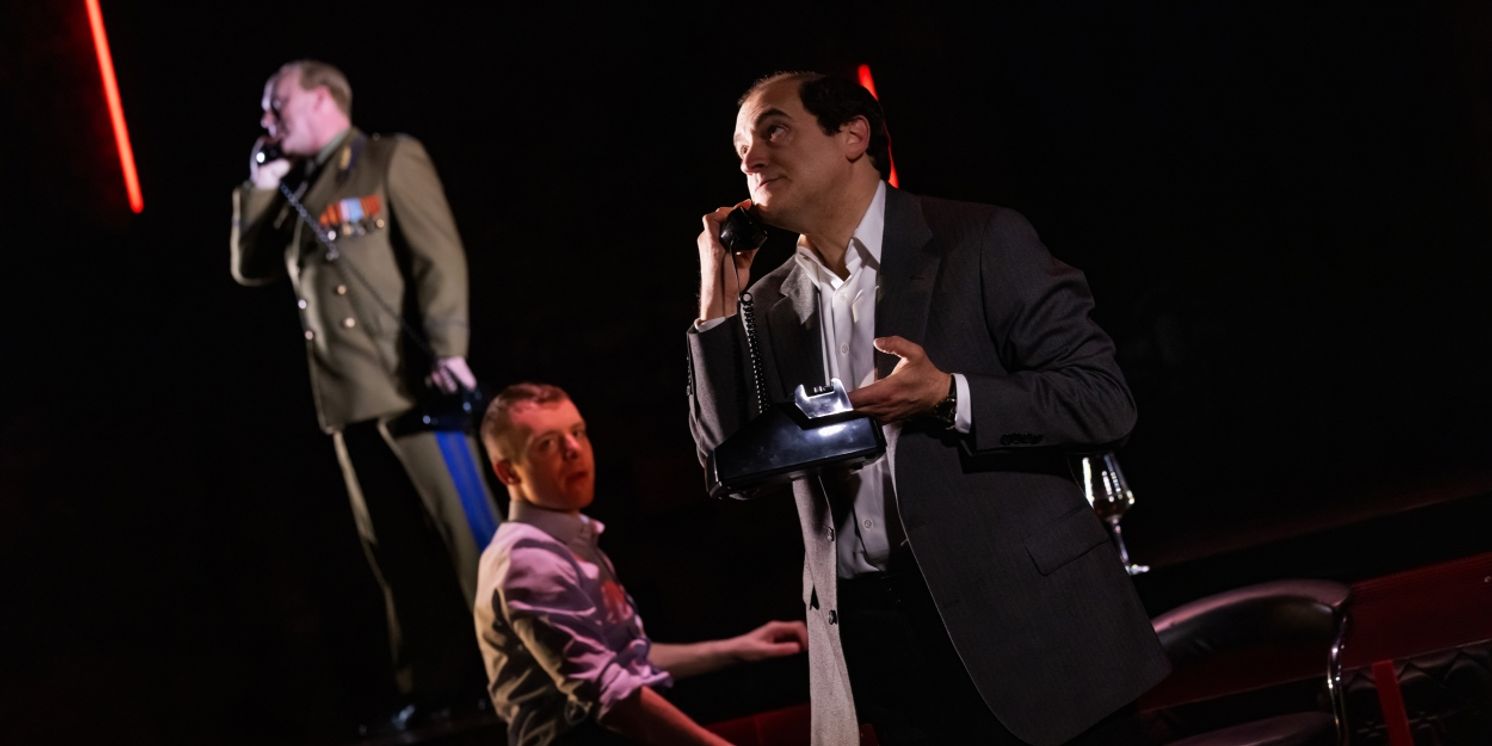
Michael Stuhlbarg is back on Broadway in Patriots, the timely new play by Peter Morgan, and directed by two-time Olivier Award winner Rupert Goold.
In 1991, after the fall of the Soviet Union, the new Russia belongs to its oligarchs – and no one is more powerful than billionaire Boris Berezovsky. “If the politicians cannot save Russia,” he insists, “then we businessmen must.” When an eventual successor to President Boris Yeltsin is needed, Berezovsky turns to the little-known deputy mayor of St. Petersburg, Vladimir Putin (Keen). But soon Putin’s ruthless rise threatens Berezovsky’s reign, setting off a riveting, near-Shakespearean confrontation between the two powerful, fatally flawed men.
BroadwayWorld is pulling together the consensus from the New York City critics and you can check out they are saying about the new play below!
![]() Jesse Green, New York Times: But then “Patriots” is no better a source for moral news than the other kind. Perhaps no play is. Here, though, Putin is given way more than his due: glamorized as a shy, upstanding mayor corrupted by Berezovsky and his plutocratic ilk. Whereas Berezovsky, who did after all try to bring Putin down, is left in the gutter, with a certain amount of dramaturgical glee. Goold stages his downfall like a rock opera, with strobes, bursts of loud noise (these are often assassination attempts) and weird dancers. If not moral clarity, then, “Patriots” at least offers a lesson: There are moments when tyrants are still tyros, when Putins are nobodies — and evil can be redirected or sidelined. Wait too long and you could lose your chance.
Jesse Green, New York Times: But then “Patriots” is no better a source for moral news than the other kind. Perhaps no play is. Here, though, Putin is given way more than his due: glamorized as a shy, upstanding mayor corrupted by Berezovsky and his plutocratic ilk. Whereas Berezovsky, who did after all try to bring Putin down, is left in the gutter, with a certain amount of dramaturgical glee. Goold stages his downfall like a rock opera, with strobes, bursts of loud noise (these are often assassination attempts) and weird dancers. If not moral clarity, then, “Patriots” at least offers a lesson: There are moments when tyrants are still tyros, when Putins are nobodies — and evil can be redirected or sidelined. Wait too long and you could lose your chance.
![]() Greg Evans, Deadline: As good as Stuhlbarg and Keen are – and they’re very good, as are Luke Thallon as oligarch-turned-Putin puppet Roman Abramovic and Alex Hurt as Berezovsky’s doomed security man – Patriots never fully conveys the emotional vitality or grand drama – in short, the Shakespearean – in the power plays. As history lesson, Patriots is more than worthy. As drama, well, it’s a history lesson.
Greg Evans, Deadline: As good as Stuhlbarg and Keen are – and they’re very good, as are Luke Thallon as oligarch-turned-Putin puppet Roman Abramovic and Alex Hurt as Berezovsky’s doomed security man – Patriots never fully conveys the emotional vitality or grand drama – in short, the Shakespearean – in the power plays. As history lesson, Patriots is more than worthy. As drama, well, it’s a history lesson.
![]() Robert Hofler, The Wrap: In a Broadway season filled with big performances, there’s none bigger or busier than Michael Stuhlbarg’s portrayal of Berezovsky. He leaves no gesture, no inflection, no dance step unexplored. Berezovsky was a child prodigy, but rather than taking his phenomenal aptitude for math and going into academia like a normal genius, he instead made billions by becoming Russia’s top oligarch after the collapse of the U.S.S.R. Stuhlbarg’s spewing of Morgan’s aphorisms recall the Old Fool in “Boris Godunov” and sometimes provokes applause from the audience. It’s not so much a dramatic performance as it is a musical-comedy performance without the songs.
Robert Hofler, The Wrap: In a Broadway season filled with big performances, there’s none bigger or busier than Michael Stuhlbarg’s portrayal of Berezovsky. He leaves no gesture, no inflection, no dance step unexplored. Berezovsky was a child prodigy, but rather than taking his phenomenal aptitude for math and going into academia like a normal genius, he instead made billions by becoming Russia’s top oligarch after the collapse of the U.S.S.R. Stuhlbarg’s spewing of Morgan’s aphorisms recall the Old Fool in “Boris Godunov” and sometimes provokes applause from the audience. It’s not so much a dramatic performance as it is a musical-comedy performance without the songs.
![]() Chris Jones, New York Daily News: Morgan’s characters explain themselves at times like they are walking Wikipedia entries. As with “The Crown,” these histories always run the risk of making people think they are watching historical fact, not a dramatic rendition with imagined dialogue. But very few people know the Putin backstory; as such, “Patriots” is a helpful, cautionary tale of unintended consequence.
Chris Jones, New York Daily News: Morgan’s characters explain themselves at times like they are walking Wikipedia entries. As with “The Crown,” these histories always run the risk of making people think they are watching historical fact, not a dramatic rendition with imagined dialogue. But very few people know the Putin backstory; as such, “Patriots” is a helpful, cautionary tale of unintended consequence.
![]() Naveen Kumar, Washington Post: It proves tough territory to conquer, despite the Sturm und Drang of this staging by Almeida artistic director Rupert Goold (Netflix, a co-producer on the show, is reportedly developing a screen adaptation). Morgan’s choice to focus on Berezovsky, a pivotal figure in shaping post-Soviet Russia (and installing its authoritarian leader), is a promising one. But “Patriots” suffers from a slipperiness of both focus and scale, dramatizing historical incidents and backroom deals while only thinly sketching the characters behind them.
Naveen Kumar, Washington Post: It proves tough territory to conquer, despite the Sturm und Drang of this staging by Almeida artistic director Rupert Goold (Netflix, a co-producer on the show, is reportedly developing a screen adaptation). Morgan’s choice to focus on Berezovsky, a pivotal figure in shaping post-Soviet Russia (and installing its authoritarian leader), is a promising one. But “Patriots” suffers from a slipperiness of both focus and scale, dramatizing historical incidents and backroom deals while only thinly sketching the characters behind them.
![]() Kyle Turner, New York Theatre Guide: It’s curious that Morgan depicts Putin as a man whose ambitions and cunning stays under wraps, Keen playing him with smaller gestures opposite Stuhlbarg’s heavily gesticulatory performance. But here, rather than a man who’s biding his time to get to a place where he can rule without consequence, Morgan’s Putin really is made by this version of Berezovsky, only intermittently trying to assert his own agency, but basically molded into something that his maker loses control of. It’s an easily digestible version of history, possibly problematic in its vision that Berezovsky, hungry only for power, is the only person with autonomy until the world of his making no longer has a use for him.
Kyle Turner, New York Theatre Guide: It’s curious that Morgan depicts Putin as a man whose ambitions and cunning stays under wraps, Keen playing him with smaller gestures opposite Stuhlbarg’s heavily gesticulatory performance. But here, rather than a man who’s biding his time to get to a place where he can rule without consequence, Morgan’s Putin really is made by this version of Berezovsky, only intermittently trying to assert his own agency, but basically molded into something that his maker loses control of. It’s an easily digestible version of history, possibly problematic in its vision that Berezovsky, hungry only for power, is the only person with autonomy until the world of his making no longer has a use for him.
![]() Juan A. Ramirez, Theatrely: Rupert Goold directs with a coach’s jingoism, an approach which moves things along quickly, sometimes loudly, and makes the most of Miriam Buether’s set: a palatial office cutting across a long, posh bar and flanked by raised balconies pegged to an imposing brick wall. Though Jack Knowles’ lighting and Adam Cork’s music and sound design similarly turn up the energy, they cannot create a character out of Berezovsky, of whom we learn very little. Lacking detail and focus, Patriots is a character study without much of either.
Juan A. Ramirez, Theatrely: Rupert Goold directs with a coach’s jingoism, an approach which moves things along quickly, sometimes loudly, and makes the most of Miriam Buether’s set: a palatial office cutting across a long, posh bar and flanked by raised balconies pegged to an imposing brick wall. Though Jack Knowles’ lighting and Adam Cork’s music and sound design similarly turn up the energy, they cannot create a character out of Berezovsky, of whom we learn very little. Lacking detail and focus, Patriots is a character study without much of either.
![]() Frank Scheck, New York Stage Review: But throughout the play’s lengthy running time, Morgan delivers the sort of brilliantly observed characterizations at which he excels. In Stuhlbarg’s wildly entertaining, outsized performance, Berezovsky emerges a man who deeply loves both his country and his extravagant lifestyle, complete with nubile young girlfriends and Caribbean fishing vacations. He becomes deeply outraged by his protégé’s betrayal, not only on personal terms but also because he sees that Putin is taking his country back to the past.
Frank Scheck, New York Stage Review: But throughout the play’s lengthy running time, Morgan delivers the sort of brilliantly observed characterizations at which he excels. In Stuhlbarg’s wildly entertaining, outsized performance, Berezovsky emerges a man who deeply loves both his country and his extravagant lifestyle, complete with nubile young girlfriends and Caribbean fishing vacations. He becomes deeply outraged by his protégé’s betrayal, not only on personal terms but also because he sees that Putin is taking his country back to the past.
![]() David Finkle, New York Stage Review: Pulling all this together — with Jack Knowles’ dramatic lighting, Adam Cork’s sound and original music, and Ash J. Woodward’s striking video design — is Rupert Goold. Ever since he startled Manhattan audiences with his 2008 Macbeth, he has never lowered his standards. He has only raised them. Patriots is a new high.
David Finkle, New York Stage Review: Pulling all this together — with Jack Knowles’ dramatic lighting, Adam Cork’s sound and original music, and Ash J. Woodward’s striking video design — is Rupert Goold. Ever since he startled Manhattan audiences with his 2008 Macbeth, he has never lowered his standards. He has only raised them. Patriots is a new high.
![]() Jonathan Mandell, New York Theater: “Patriots” ultimately feels like a play for a different time and a different place. It is opening at the crowded end of a busy Broadway season, and if New York theatergoers are going to be offered a play about Russia that involves Vladimir Putin, why a British play about a Russian oligarch whose heyday was in the 1990s, with most of the depicted events having occurred decades ago? We don’t get enough of a background or perspective on what much of the world (including Americans) view as an urgent current moment — Putin’s continuing war on Ukraine. If it’s true, as the play indicates, that Putin began his reign making overtures to the West — we’re told he even wanted Russia to become a member nation of NATO — then what happened? We’re left in the dark. We can guess; try to read between the lines, do some research afterwards on our own. Or if we want a more complete picture from Peter Morgan, we can wait to see if he turns the story into another Netflix series.
Jonathan Mandell, New York Theater: “Patriots” ultimately feels like a play for a different time and a different place. It is opening at the crowded end of a busy Broadway season, and if New York theatergoers are going to be offered a play about Russia that involves Vladimir Putin, why a British play about a Russian oligarch whose heyday was in the 1990s, with most of the depicted events having occurred decades ago? We don’t get enough of a background or perspective on what much of the world (including Americans) view as an urgent current moment — Putin’s continuing war on Ukraine. If it’s true, as the play indicates, that Putin began his reign making overtures to the West — we’re told he even wanted Russia to become a member nation of NATO — then what happened? We’re left in the dark. We can guess; try to read between the lines, do some research afterwards on our own. Or if we want a more complete picture from Peter Morgan, we can wait to see if he turns the story into another Netflix series.
![]() Frank Rizzo, Variety: There’s an expectation that in Morgan’s latest merging of historic fact and fiction that the writer of “The Crown” on TV, “The Audience” on stage and “The Queen” on film will once again provide an intimate and revealing look behind another well-guarded curtain, this time one that is made of iron. But on this foreign turf Morgan’s footing is less sure, he’s less able to speak with the native authenticity that he brought to his other, far richer works. These charmless characters are broadly outlined, psychologically shallow and simplistically played.
Frank Rizzo, Variety: There’s an expectation that in Morgan’s latest merging of historic fact and fiction that the writer of “The Crown” on TV, “The Audience” on stage and “The Queen” on film will once again provide an intimate and revealing look behind another well-guarded curtain, this time one that is made of iron. But on this foreign turf Morgan’s footing is less sure, he’s less able to speak with the native authenticity that he brought to his other, far richer works. These charmless characters are broadly outlined, psychologically shallow and simplistically played.
Average Rating: 67.3%
- To read more reviews, click here!
- Discuss the show on the BroadwayWorld Forum
Reader Reviews
Powered by
|
Videos


